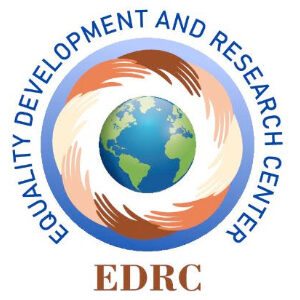Women and Trafficking
Over time, hundreds of thousands of women have been sold into slavery, as wives or prostitutes, after being kidnapped or tricked into going with traffickers. Although International Law recognizes trafficking as a form of human rights violation, it is only recently that the International Community recognizes it as a violation of women’s rights. Reason being that, it cannot be denied that for the most part, the persons be sold into slavery, or sold as wives and prostitutes, are women. Although the Nigerian Government has committed itself to eliminating trafficking of women, it fails to give adequate information about this crime, thus failing to mobilize society to combat it. According to the United Nations Children’s Fund (UNICEF), backing the statistics of the International Labor Organization (ILO), around 200,000 to 300,000 children are trafficked each year for forced labor and sexual exploitation in West and Central Africa. Also, according to a 2001 ILO survey on child labor in West and Central Africa, about 330,000 children were employed in the cocoa agricultural industry in Cameroon, Cote d’Ivoire, Ghana and Nigeria. Out of the thousands of children working in Cote d’Ivoire, around 12,000 had no family connection to the cocoa farmer or any local farm in the country, and 2,500 were recruited by intermediaries in Nigeria and Côte d’Ivoire. According to the International Institute of Tropical Agriculture (IITA), alarmingly girls are more frequently the victims of child trafficking than boys. The trafficking of women is not a purely local phenomenon, within Nigeria’s borders. It has a significant regional and international dimension too. According to the Global Alliance Against Traffic in Women, criminal rings are involved in the smuggling of women across international frontiers, mainly for menial work in the heavily immigration, dependent economy of Gabon, plantation work in Cameroon and commercial sex in Europe. Record has shown that children between the ages of seven and sixteen are frequently transported to Gabon and Cameroon, from various points in the east of Nigeria, in the states of Abia, Akwa Ibom, Cross Rivers and Imo. Between March 1994 and January 1997 at least 400 children were rescued in Akwa Ibom State, which is one of the main departure points to Gabon. In the last 10 years, there has been large scale trafficking of adolescent girls and young women, to Europe, particularly Italy, for work in the sex industry. These women are lured abroad by traffickers promising them legitimate and lucrative work, but on arrival they are handed over to prostitution racketeers. They are forced to engage in sex work to pay off large debts supposedly accumulated to pay for their travel documents, tickets and accommodation. And to avoid non-compliance, they are threatened with physical abuse or death or exposure to the authorities and possible imprisonment or deportation. In effect, these women are held under duress in a form of debt bondage. This portrays a society where everything is commodity and this includes women’s bodies.
Who We Are
Be a Volunteer Our Community
Known across the country and the world for the amazing work we do. We use share a mix of real-life stories help raise awareness on our focus areas.
